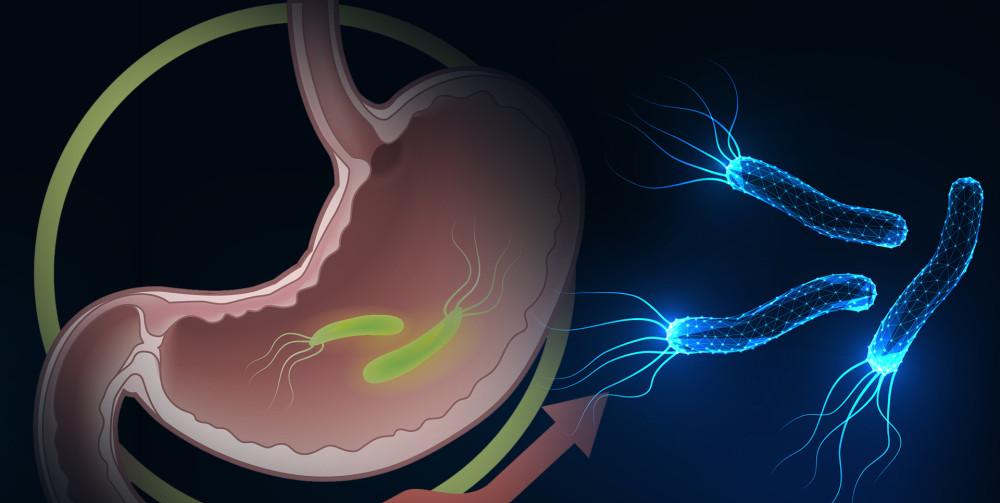Recently, Helicobacter pylori has been listed as a clear carcinogen, and the so-called toothpaste can be "anti-Helicobacter pylori" News has been on the hot search.
Helicobacter pylori has attracted much attention, first from the 15th edition of the carcinogen report released by the US Department of Health and Human Services, which for the first time listed "Helicobacter pylori chronic infection" as a clear carcinogen. As early as 2012, "Helicobacter pylori infection" appeared in the List of Class 1 carcinogens of the World Health Organization's International Agency for Research on Cancer. According to conservative estimates by the World Gastroenterology Organization, at least half of the world's population is infected with Helicobacter pylori. In our country, the average infection rate of Helicobacter pylori is 59%, of which the infection rate of children averages 40%.
So, what exactly is Helicobacter pylori? Helicobacter pylori, also known as Helicobacter pylori, is a spiral-shaped, micro-aerobic, that is, a bacterium that grows well in a low-oxygen environment of about 5%, which can be "colonized" in the human stomach for a long time and lead to chronic inflammation, mainly through mouth-mouth, fecal-oral transmission.

What does it mean for Helicobacter pylori to be listed as a definitive carcinogen? Why is the average infection rate in China nearly 60%? Xu Dazhi, director and chief physician of the Department of Gastric Surgery of Fudan University Affiliated Cancer Hospital, believes that in China, helicobacter pylori infection "one person gets sick, the whole family is infected" is not uncommon, mainly because the family meal system makes Helicobacter pylori infected through saliva, and young children and the elderly are more susceptible to infection. In addition, the occurrence and development of the disease is also related to many other factors, such as eating habits, living habits, genetic factors and so on.
Helicobacter pylori has been listed as a carcinogen by the World Health Organization and the United States health department, indicating that Helicobacter pylori is indeed related to gastric cancer, and the incidence of gastric cancer in people infected with Helicobacter pylori is higher than that of people without infection, but infection with Helicobacter pylori does not mean that it is equated with stomach cancer, and the relationship between carcinogens and cancer is not one-to-one.
According to the Fifth National Consensus On the Management of Helicobacter pylori infection, about 15%-20% of patients with Helicobacter pylori positive in The country develop peptic ulcers, 5%-10% develop dyspepsia, and less than 1% of infected patients develop gastric mucosal-associated lymphoid tissue lymphoma, which may be at risk of cancer. Experts also point out that most people do not have obvious clinical symptoms after infection with Helicobacter pylori.
Helicobacter pylori is listed as a definitive carcinogen, which also makes the "anti-Helicobacter pylori concept stock" a big hit in the secondary market. In addition, in a number of e-commerce platforms and some offline pharmacies, you can see the so-called "ghost killing artifact" and "prevention of stomach cancer" of the "anti-ghost toothpaste", even probiotics, test paper and other products are also popular. In this regard, the State Food and Drug Administration issued a reminder on the 7th that "toothpaste cannot treat diseases" pointing out that toothpaste cannot be publicized to have a medical effect, and the promotion of "anti-Helicobacter pylori" lacks scientific basis. There is no evidence that the use of toothpaste can have an effect on Helicobacter pylori present in the stomach.
According to the Regulations on the Supervision and Administration of Cosmetics, toothpaste refers to the management of ordinary cosmetics, and the application for a license is "makeup name". According to Article 17 of the Advertising Law, advertisements for toothpaste products must not involve disease treatment functions, and must not use medical terms or terms that are likely to confuse the goods being marketed with drugs and medical devices. However, in order to evade supervision, illegal merchants often apply for the so-called "anti-ghost toothpaste" as "mechanical brand size" or "elimination number". In fact, the "elimination number" refers to the health batch number approved by the local health department, which does not have any curative effect and belongs to the category of sanitation and disinfection; "mechanical name" refers to the medical device filing number, and the mechanical product number is a low degree of risk, and the implementation of national conventional management can ensure its safety and effective medical devices. Toothpaste clearly falls out of the list of both.
Xu Dazhi said that the reason why "anti-yu toothpaste" has a gap to take advantage of is directly related to the limited or even incorrect knowledge of helicobacter pylori among ordinary people. First of all, Helicobacter pylori testing should be done in a regular hospital, usually detected by the C-13 urea breath test; secondly, even if infection with Helicobacter pylori is confirmed, patients do not need to be overly nervous, and the vast majority of people can achieve bacterial eradication through oral drug therapy within two weeks. In addition, germs do not necessarily need to be eradicated, insufficient treatment or overtreatment is harmful, and the general population without obvious clinical symptoms does not have much need to treat. However, if infection with Helicobacter pylori causes symptoms such as gastritis, gastric ulcers or stomach discomfort, it should be consulted promptly, and targeted treatment may be more appropriate.
Xu Dazhi also pointed out that there are many false products on the market that are cloaked in "curing the cloak of governance", and the regulatory authorities should also strengthen the corresponding crackdown. It is understood that the State Food and Drug Administration has studied and drafted the "Measures for the Supervision and Administration of Toothpaste" and is actively promoting the State Administration of Market Regulation to issue regulations for the department as soon as possible. The regulations will regulate the whole process of toothpaste products from filing, production and operation.
(Look at the news Knows editor Cui Xinshu Zhou Ti Zhai Jing)